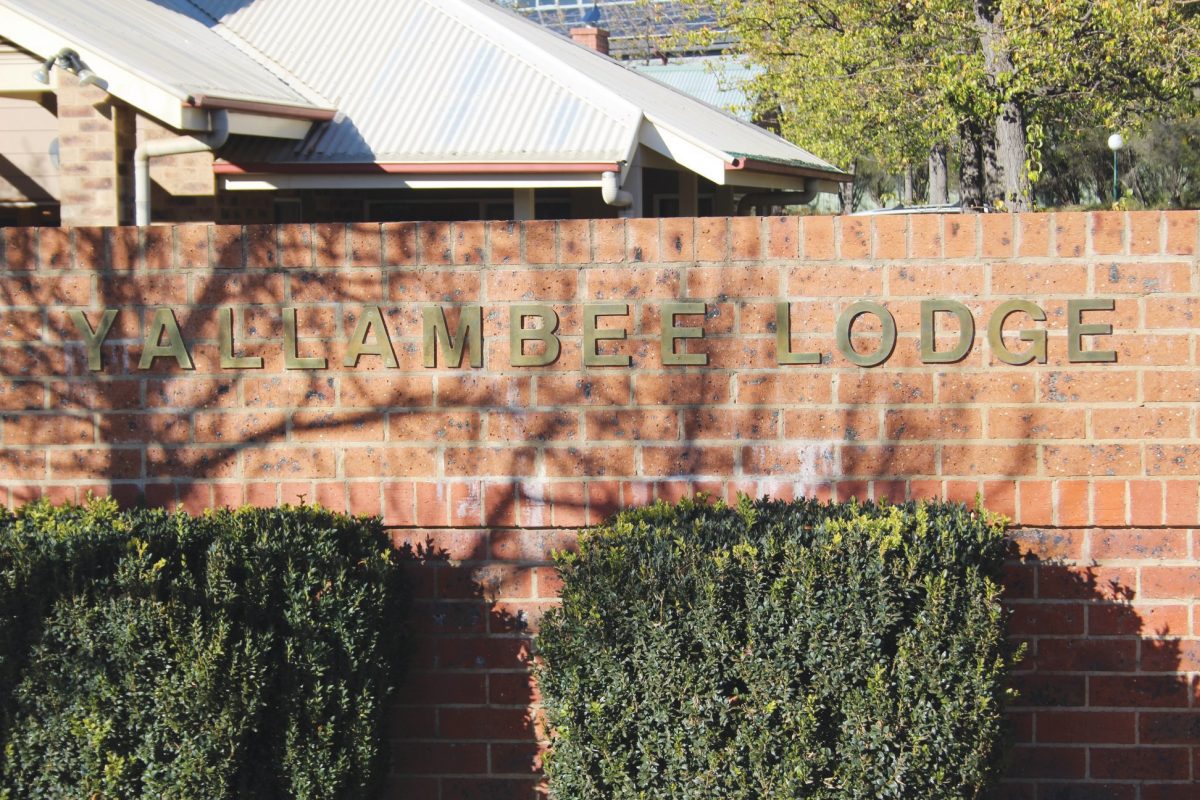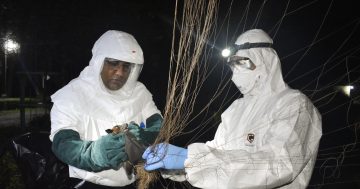
Yallambee Lodge’s COVID-19 outbreak has been reported to the NSW Public Health Unit. Photo: Gail Eastaway.
A COVID-19 outbreak has been notified at Cooma’s Yallambee Lodge residential aged care facility, with six residents and five staff testing positive so far.
The first resident tested positive on Wednesday (22 November) evening, with Snowy Monaro Regional Council enacting the facility’s outbreak management plan in response.
Visitation is still allowed, but visitors have to wear a facemask and return a negative rapid antigen test (RAT) before admission to Yallambee Lodge will be granted.
Visitors who have been ill or infected with any respiratory illness within seven days of their visit won’t be permitted entry.
The NSW Public Health Unit has been notified, while staff, visitors and residents are undergoing daily RAT testing.
A council statement said residents who had tested positive were, to date, experiencing mild symptoms. No residents have needed to be transferred to hospital, and medical treatment is being provided on site.
“Council has commenced discussions with the NSW Public Health Unit to seek staffing support to address shortages resulting from the current outbreak,” the statement concluded.
Health officials have urged everyone to have their booster shot before Christmas, with cases on the rise across NSW.
While the daily number of cases doesn’t provide a clear picture of the extent of transmission anymore due to testing no longer being mandatory and PCR sites closing down, Monash University’s head of the epidemiological modelling unit, Associate Professor James Trauer, said the country was experiencing a “significant wave of transmission”.
“Other data sources still give us a good sense [of COVID-19 cases]. For example, wastewater surveillance and hospital admissions show a marked increase in infections over the last few months,” he said.
COVID-19 is now considered an endemic infection, which means transmission occurs continuously like other viruses such as the flu.
A/Prof Trauer explained an “expected feature” of endemic COVID-19 was transmission occurring in peaks and troughs as immunity from previous waves, or strains, fades.
“The emergence of new variants is also contributing to these ebbs and flows. Although a few current variants are being closely watched, none of the currently circulating strains seem to cause more severe disease than the preceding strains,” he said.
“Because new variants are contributing significantly to each wave of infection, it is more difficult than ever before to predict when they will peak.”
This means vaccination and booster shots remain an important key to ensuring a person doesn’t experience severe illness when they contract COVID-19, similar to other seasonal vaccines.
The Therapeutic Goods Administration of Australia has recently approved new vaccines for primary and additional doses from Moderna and Pfizer.
The new monovalent Omicron XBB.1.5 vaccines are now available in Australia, and the Australian Technical Advisory Group on Immunisation (ATAGI) has advised they are the preferred vaccine for children aged five or older, as well as adults. This is because other vaccines, while still effective, contain the original strain of Omicron, while the monovalent vaccine targets the newer subvariants.
“Older vaccine formulations continue to provide strong protection against severe disease,” an ATAGI statement said.
“Available data suggests monovalent XBB vaccines provide modestly enhanced protection from severe disease compared to older vaccines.
“ATAGI notes the recent increase in COVID-19 cases across Australia since November 2023. ATAGI encourages all people who have not yet had their recommended 2023 dose/s to receive them as soon as possible.”








